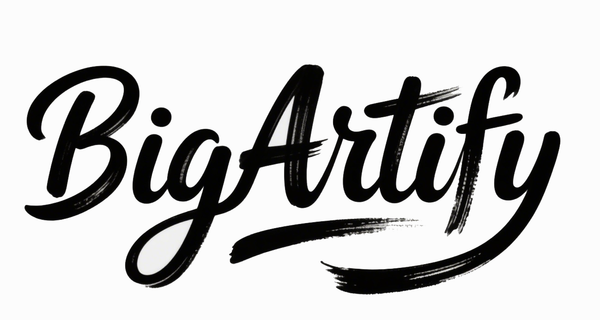Family's Legal Battle Over Stolen Paintings Turns Contentious as Litigation Funder Seeks Control
A high-stakes legal battle surrounding the recovery of 135 purportedly stolen Russian avant-garde artworks has taken a dramatic turn. The family of the late Palestinian entrepreneur Uthman Khatib, whose collection is valued at $323 million, has accused the litigation funder backing their lawsuit, LitFin Capital, of attempting to take control of the legal actions. This dispute highlights not only the complexities of recovering looted art but also the increasing influence and controversies surrounding litigation financing in art restitution cases.

Background: The Stolen Russian Avant-Garde Collection
The Khatib family alleges that Israeli-Russian collector Mozes Frisch unlawfully took possession of a large collection of Russian avant-garde paintings — including works by luminaries such as Lizzky, Imir Male, and Didily Kinsky — from their family in 2019. The artworks are part of a broader assemblage totaling 1,778 pieces of valuable Russian modernist art.
After years of legal efforts, including a significant seizure of 135 paintings by French authorities in 2024, the family is seeking either the return of the artworks or compensation amounting to $323 million. The litigation is being pursued internationally, with active cases in Germany and France.
The Litigation Funding Controversy
The funding of such expensive and complex legal actions has been enabled by the Prague-based litigation financing firm LitFin Capital, which began supporting the Khatib family’s claims in late 2023 with a commitment of nearly $10 million in legal fees. Initially, both parties expressed enthusiasm about this partnership, especially following the seizure in Paris, with the family publicly acknowledging LitFin’s role.
However, tensions emerged toward the end of 2024, when LitFin reportedly refused to fund further legal expenses unless it gained control over the lawsuits. The Khatib heir, Prince Castro Ben Leon, has accused LitFin of breaching their funding contract and seeking to marginalize the family’s involvement by requesting the removal of himself and his father from the claims.
The dispute escalated into private arbitration in Frankfurt, Germany, where the family alleges that LitFin’s CEO Maros Kravec conditioned payment of outstanding law firm fees on the withdrawal of legal representation against the accused collector, an act described by the family’s lawyers as a breach of ethical boundaries.

Implications and Broader Context
This case exemplifies the delicate balance between funding access to justice and maintaining control over sensitive legal battles. Litigation funding has become increasingly common in art restitution cases, given the exorbitant costs and international complexities involved. However, as seen here, conflicts of interest and attempts to assume control can undermine the original owners' rights and narratives.
The Khatib family continues to pursue justice, aiming not just to reclaim priceless artworks but also to assert autonomy in deciding the course of their legal fight. Meanwhile, counterclaims exist: some parties connected to the seized artworks, including owners of the authentication firm ArtAnalysis, are suing the family for damages exceeding $30 million in related lawsuits.
Related Legal and Cultural Developments
The challenge of recovering stolen and looted art remains a pressing international issue, with cases ranging from Nazi-looted masterpieces to contemporary thefts and frauds. Courts and governments worldwide are grappling with competing claims, provenance verification, and the role of litigation funding.
For further insight into the realm of art crime, restitution, and legal battles funded by third parties, explore resources such as the Institute of Art and Law and recent articles from ARTnews that track developments in high-profile art restitution cases.

Frequently Asked Questions (FAQ)
Q1: Who is funding the Khatib family’s legal battle for stolen Russian avant-garde paintings?
The Prague-based litigation finance firm LitFin Capital has been funding the family’s legal efforts, committing close to $10 million in legal expenses since late 2023.
Q2: What is the dispute between the Khatib family and LitFin about?
LitFin reportedly tried to gain control over the lawsuits in exchange for continued funding, leading the family to accuse the firm of breaching their contract and attempting to remove family members from key legal roles.
Q3: What artworks are involved in this case?
The case concerns 135 paintings seized in Paris, part of a larger collection of 1,778 Russian avant-garde artworks allegedly stolen by Mozes Frisch, including pieces by artists like Lizzky and Imir Male.
Q4: What legal actions have been taken to recover the artworks?
The family has sued for the return of the stolen art or compensation of $323 million, with courts in Paris and Germany involved. Meanwhile, counter-lawsuits also exist involving related parties.
Q5: How common is litigation funding in art restitution cases?
Litigation funding is increasingly used to support costly and complex international art recovery lawsuits but can sometimes lead to conflicts over control and ethics.
Q6: Where can I learn more about art crime and restitution?
Authoritative organizations such as the Institute of Art and Law and news outlets like ARTnews regularly provide detailed coverage and analysis.
This ongoing battle underscores the multifaceted challenges in recovering stolen art today — from securing rightful ownership to managing complex funding and legal strategies. The Khatib family’s courageous fight exemplifies the enduring quest for justice in the art world.
